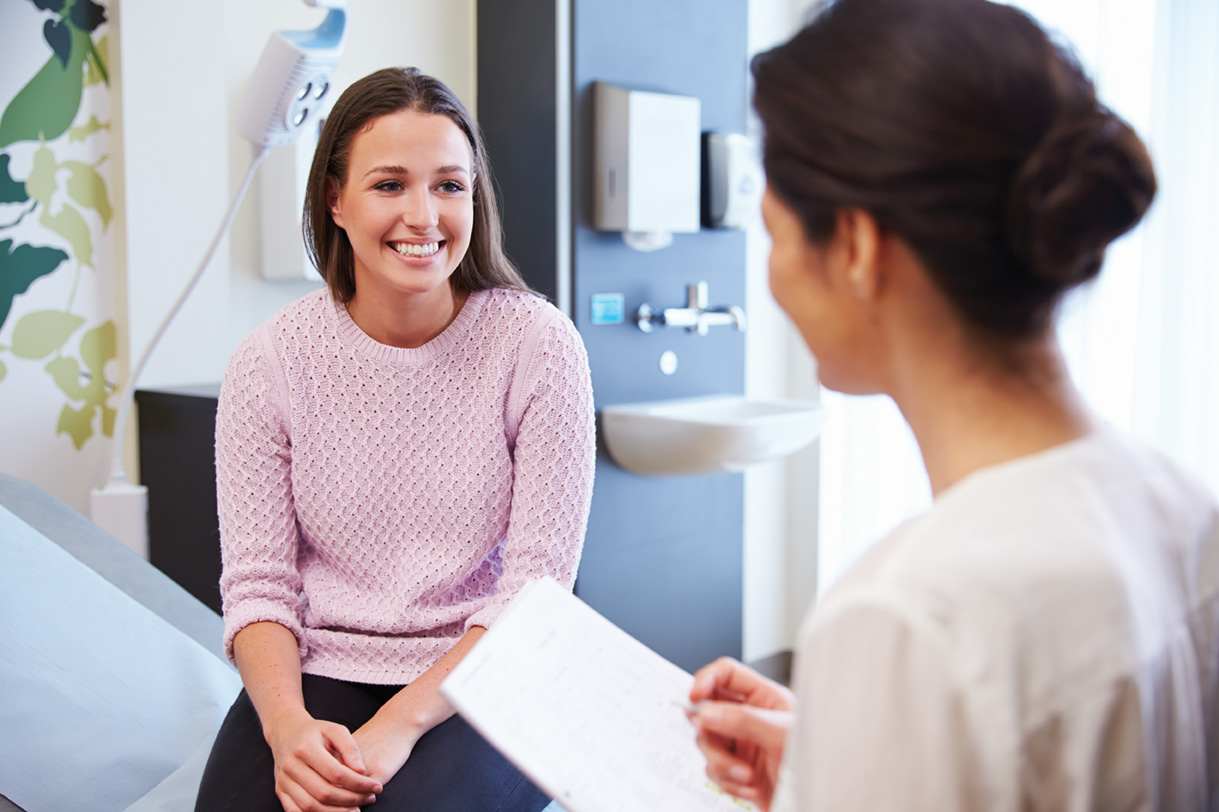As women, our nurturing demeanor can sometimes come at our own expense. Our annual checkups or well-woman visits are not always our top priority. However, these screenings offer a chance to catch serious diseases early, when they are most easily treated.
As medical experts work to better understand diseases, their advice tends to change, making it difficult to know which screenings you may need. Use the general guide below to see if you are due for a recommended screening. It is always important to talk to your primary care physician for recommendations that are specific to your medical needs.
Colon cancer screening: Recommended for women age 50-75 years old or younger for women with higher risk due to family history. Colonoscopy is the gold standard or preferred method for screening, but some patients can choose a stool-based test after discussion with their provider.
Cervical cancer screening: Women age 21-65 should get Pap smears every three years. If you are over 30 and want to lengthen the screening interval, you can do it every five years by combining Pap with a human papilloma virus (HPV) test. While you may not need a Pap smear every year, you should still have a yearly exam with your doctor.
Breast cancer screening: Women should start having mammograms either at age 40 or 50, depending on family history and personal preference. Talk with your doctor to evaluate your personal risk, as there are also new recommendations for genetic counseling and screening for women with family history of certain malignancies.
Lung cancer screening: A yearly low-dose chest CT scan is now recommended for women age 55-80 who have significant history of smoking, who currently smoke or have quit within the past 15 years.
Bone density screening: You should have a bone density scan (DXA scan) starting at age 65 or younger for women with higher fracture risk. Based on your results, your doctor will recommend subsequent screening intervals.
Hepatitis C screening: If you were born between 1945 and 1965, you should have a onetime screening blood test for hepatitis C since this age group was found to have a higher number of undiagnosed patients. At any age, patients at high risk for hepatitis C should also have a test. It can be done at the same time of any other blood work.
HIV screening: This is recommended for women age 15-65 or women at high risk for infection.
Besides health screenings, important topics such as age-appropriate vaccinations, cardiovascular disease prevention and appropriate weight, nutrition and physical activity will be discussed during your checkup.
It is very important to make your health a priority. The next time you book your kids or spouse for a physical, or drive your parents to their doctor appointments, make sure you are putting the same effort into your own health.



Comments